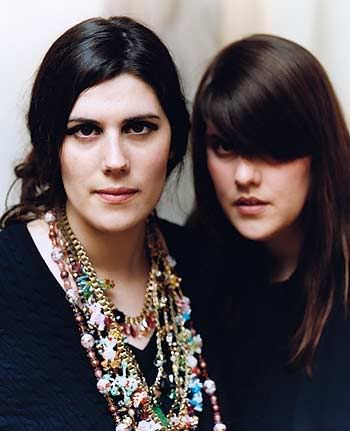
This week, fashion brand Rodarte (designer sisters Kate and Laura Mulleavy) announced a collaboration with MAC cosmetics. In today's world of high fashion meets high street partnerships, this announcement seemed perfectly normal, and the line was a sure success given the popularity of other similar projects. Instead, the Mulleavy sisters are now being met with a ton of criticism given the inspiration of their cosmetic line (linked to their previous fashion collection) - a road trip across the US border into Mexico - and subsequently the names of some of the products - eg: 'Juarez' and 'Factory' are nailpolish shades in the collection. Many critics are calling this distasteful, given the many social problems in the impoverished areas that the Rodarte sisters were inspired by, as well as the fact that these are cosmetic products, and have essentially no meaning beyond that, so why weigh them down with such heavy issues? Is this really raising awareness? MAC are now backpedaling after the uproar online and assuring customers that some proceeds will go towards charities in the Juarez area.
Obviously fashion, and more widely, art, wouldn't be where it is today without people pushing boundaries and finding inspiration in the not-so-peaches-and-cream parts of life. But under what circumstances is one "allowed" to use tragedy and the suffering of others as crucial elements of one's art? Personally I don't think there should be any rules about where to source your inspiration from, but the execution must be flawless. If one is to use say, the horrible situation in Juarez as the stimulus point for a work, I think the answer lies in the result. Is the final product successful in conveying a message or raising awareness? Or does is come off as a weak attempt at social commentary? Or worse, is the inspiration being used solely as a means to make money? This is where it comes in handy to be critical and informed.
I feel a bit foolish making a post about something I am decidedly undecided about but still. By blabbering about it with myself, I hope to eventually come to a point where I have a concrete opinion on the wider issue. In this case, I can see both sides of the argument, and as much as I want to side with the 'artists', I feel as a makeup line, it really doesn't send any kind of message other than the commodification of a tragic situation. Unfortunately for the Mulleavy sisters, I think their intentions are irrelevant in this instance. Obviously they did not go into this thinking to mitigate the horrific rates of rapes, homicides and constant gang/drug related violence in the city of Juarez - it's very likely that they wanted to draw attention to these problems. But as I said, the end result speaks for itself and from where I stand, this is an oversight on their part that has come off as very ignorant and too flighty to send the right message.




No comments:
Post a Comment